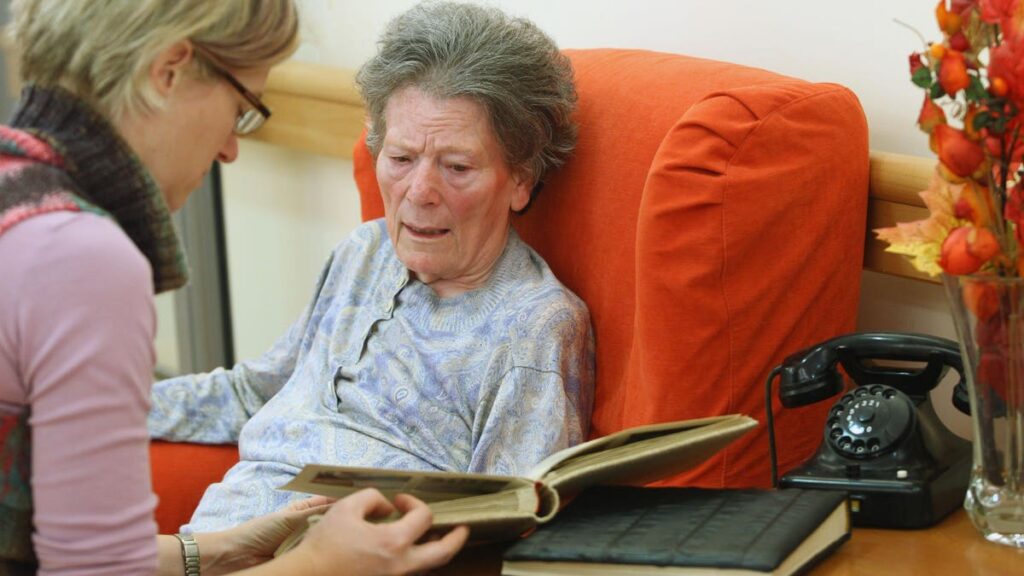Topline
Researchers at Massachusetts General Hospital believe they’ve discovered the hormonal link that allows exercise to reduce Alzheimer’s disease risk—the last affirmation that the best known way to combat the disease is by staying active.
A social therapist looks at the photo album of the resident of a residential care home for … [+]
Key Facts
In a study published Friday in the journal Neuron, the researchers found that the hormone irisin, which circulates through the body during exercise, can help reduce deposits of a protein fragment called amyloid beta in a patient’s brain cells.
These amyloid beta deposits create a plaque within the brain that scientists believe causes the hallmark symptoms of Alzheimer’s.
To discover this link, the researchers applied irisin to a 3D human cell culture model of Alzheimer’s they created, according to the study.
In doing this, they discovered that the irisin led to increased activity of an enzyme called neprilysin, which in turn led to “a remarkable reduction” in plaque and amyloid beta deposits.
The scientific community has long known that physical exercise can reduce amyloid beta deposits in Alzheimer’s disease, but the mechanisms involved have previously been unknown.
Key Background
Several studies that have followed people for years and decades of their lives have found that the most physically active participants were the least likely to develop Alzheimer’s later in life. According to the Alzheimer’s Society, which compiled 11 of those studies, regular exercise can reduce a person’s risk of developing dementia by approximately 30% and for Alzheimer’s specifically (Alzheimer’s is a type of dementia), that risk can be reduced by 45%. Other things can also reduce risk of Alzheimer’s. A study published by researchers from Australia, Illinois and Minnesota in July found that completing puzzles, doing card games, playing chess, taking adult education classes and other challenging cognitive activities can reduce the risk of developing dementia over the age of 70 by as much as 11%. Additionally, in July, a first-of-its-kind medication was approved by the Food and Drug Administration. The drug, Lecanemab, made by drugmakers Biogen and Eisai, aims to slow dementia by clearing plaque in the brain, though some outside the FDA have expressed concerns about its safety.
Surprsing Fact
Every year, 10 million new people are diagnosed with dementia worldwide, meaning one new case is discovered every 3.2 seconds, according to Alzheimer’s Disease International. That number is expected to nearly double every 20 years, with the highest increases seen in developing countries.
Tangent
In addition to discovering the link between irisin and lower levels of amyloid beta deposits, the researchers at Massachusetts General Hospital were able to identify what specific receptor that irisin binds to, causing increased neprilysin activity, according to the study.
Further Reading
Puzzles And Games Cut Dementia Risk—But Socializing With Friends And Family Barely Helps, Study Finds (Forbes)
FDA Grants Full Approval For Alzheimer’s Drug, Despite Concerns (Forbes)


